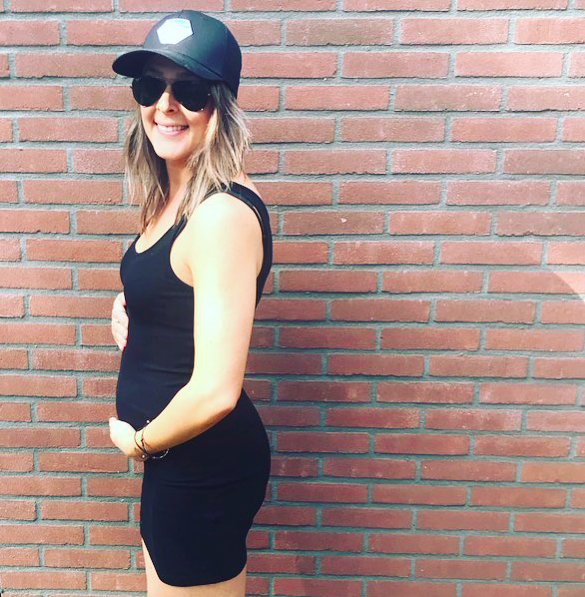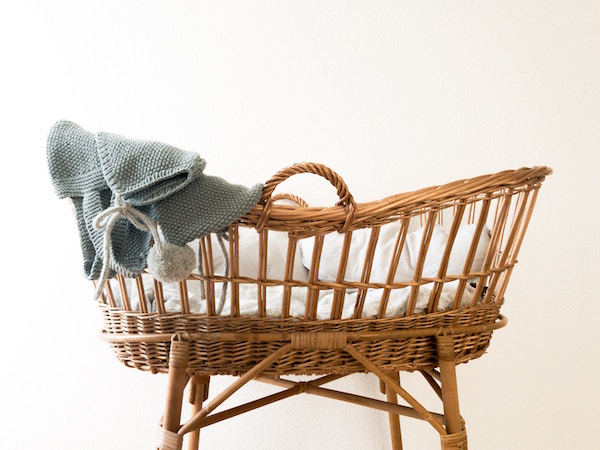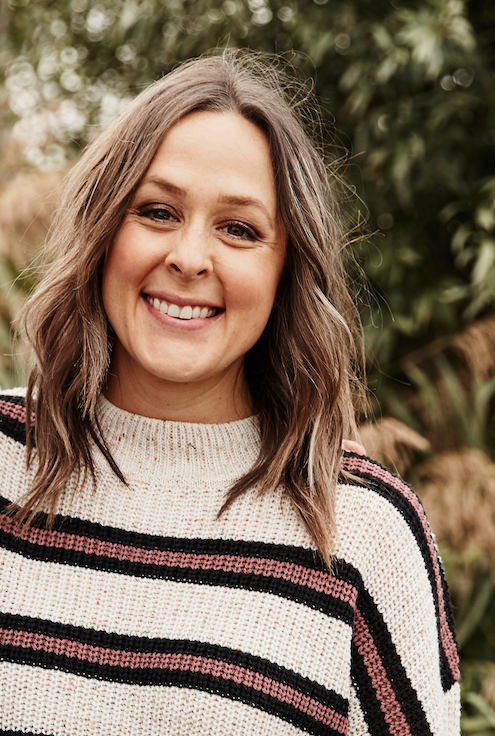We expect to be in the Netherlands for around three years total (for my husband’s job) before moving back to the States, but nothing is really set in stone. When we’re told to move back to the US we’ll do so. And until then we’ll keep on living our lives as we are in our little home away from home called Heeze (pronounced HAY-ZUH).
We thought a lot about what life was going to be like in the Netherlands before we made the move. We thought about where we wanted to travel first. We thought about what it would be like to go to the grocery store where everything is in a different language. We thought about what it would be like to drive and not understand the street signs. And we thought about whether or not we wanted to have another baby here.
For the first year or so we were pretty set on waiting until we got back to the US to have another baby. That way I could have my same doctor, in the same hospital and have the support of family. That was cushy and familiar to me. And I like that. But as time passed we started thinking, why the heck not? Why not go though a huge milestone in life (having a baby!) in a completely different country with a completely unfamiliar healthcare system. Why should we wait? We didn’t want our kids to be too far apart in age, so it was the right time.

It didn’t take long until we both decided that we would be willing to get outside of our comfort zones, stop being hesitant, and just take the plunge. Be okay with feeling scared and a little apprehensive. And just embrace where we are in life. Women have babies all over the world, so why can’t I have a baby in a different country?
It turns out that the Netherlands is one amazing country to have a baby in! They wholeheartedly view birth as a natural process that should not be intervened with medically unless necessary. In fact, most women don’t ever see a doctor throughout their pregnancy or during labor and delivery. It’s all done by midwives. And — the Netherlands is one of the leading countries for home births.
In fact, the first question I was asked by my midwife was if I wanted to have my baby at home or in the hospital. I chose hospital because that is more comfortable and familiar to me. You would almost never be asked that in the United States, so it took me a little off guard, but it was the first question I needed to really understand what being pregnant and having a baby in the Netherlands would be like.
The process of visiting your doctor/midwife is similar in the US and Netherlands in that you see them about every 4 weeks in the beginning, then as the due date nears you see them every 2 weeks, then 1 week.
But there are definitely differences that I’ve experienced so far. Not necessarily bad differences. Not necessarily good differences. Just different. And for a girl that likes her routine, different can be a little, well, different.
- I was told (although I don’t know exactly how true this is), that you don’t really get an option for who your midwife is. You have to (or should) chose a midwife in the town you live in. For me, because we live in such a small town, there was only one option. There is only one midwife. Luckily I like her and we get along well :). This is true, however, for your General Practitioner/Family Doctor. You need to choose someone who is in the town you live in.
- I’m seventeen weeks pregnant now and have yet to be asked to provide a urine sample. It’s honestly been really nice. I had to pee in a cup at every prenatal doctor appointment in the US.
- I won’t have to drink that nasty artificially colored and flavored sugar water for a glucose tolerance test (to test for gestational diabetes). It’s not a routine test done here, especially if you have a normal, healthy pregnancy.
- The NIPT test which is a non-invasive prenatal blood test (done around 10 weeks) to check for chromosomal abnormalities is common in the Netherlands, and often times is covered by insurance. When I was pregnant with my first daughter in the US, a similar test was available but I was told it would be a lofty out-of-pocket expense so we declined. We were not eligible for the NIPT test in the Netherlands because we don’t have Dutch insurance, but the test is offered in Belgium so we drove an hour and a half to a hospital there to get the test done when I was 10 weeks pregnant. That test also told us the gender of the baby which is why we knew so early on that we would be having our second baby girl!
- If you choose to have a hospital birth, you won’t see a doctor unless something goes wrong. Essentially you are “renting” a room in a hospital to deliver your baby, along with your midwife and one nurse. It’s also possible that if you go into labor after “normal business hours” there will not be an anesthesiologist working to administer an epidural if you want one. So you better be able to handle pain.
- You will get to leave the hospital and go home shorty after giving birth in the Netherlands. Dutch midwives feel that you and the baby should be in the comfort of your own home as soon as possible. In the US, women are typically in the hospital for 48-72 hours after giving birth.
- Probably one of the biggest differences from the US to the Netherlands is a service called Kraamzorg. Kraamzorg is a term that describes postnatal maternity care provided to mother and baby in the initial 8-10 days after delivery. From the day you give birth, a qualified maternity specialist/nurse will come to your house for 3+ hours per day to check on the baby, check on the mother, help with breastfeeding, cook, clean, and really do anything that you need as a new mom. There’s no pediatrician appointments to go to. It’s quite the service and it’s a true Dutch specialty! I’m excited to experience it.

That about sums up my first trimester of pregnancy. It’s definitely been an experience, but we feel that we’re getting more comfortable with the process as the weeks continue to come and go.
I’ll finish by saying that my first birth experience in the United States was a good one. I loved my doctor. I was happy with the care that I was given. And I birthed a healthy baby girl.
But — I also relied on medical intervention. I asked for an epidural to help with the pain and I was given an episiotomy. Both of these procedures are less common in the Netherlands because of their views about birth being a natural process.
So with that, I’m preparing a little different for this next birth. I’ve already read (and loved!) Ina May’s Guide to Childbirth (written by a midwife). And I’m continually seeking out blogs, websites and other books that I can read to make sure that I’m as prepared as I can be do have a natural childbirth. Because that is my honest goal in the end.
xoxo,
Angela





So interesting!!! I was so curious to hear the differences. Uhm that Kraamzorg thing sounds AMAZING! I want that here 😂 Good for you for being brave and going for it. Sounds like you’ll be in good hands.
I know, right?! The Netherlands definitely does it right!:)